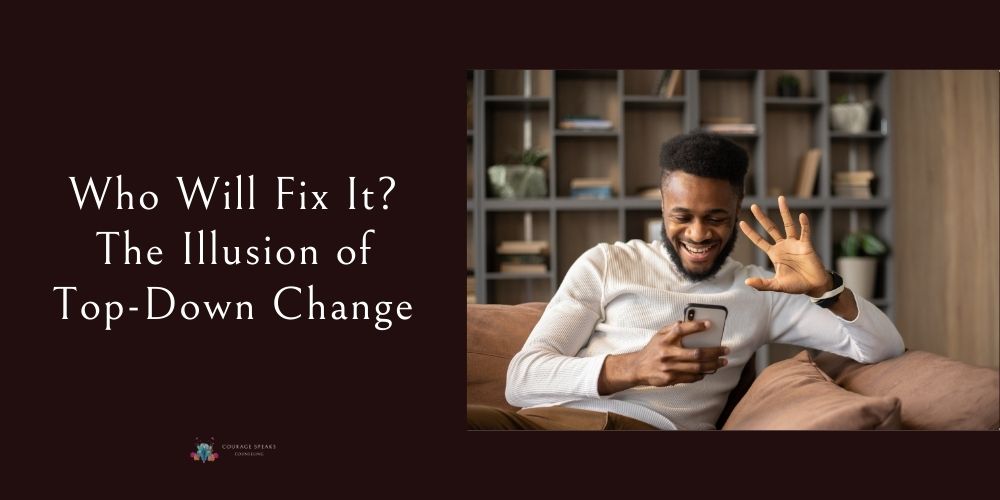It’s a familiar story. A crisis unfolds—rising suicide rates, addiction, homelessness, the breakdown of relationships—and the collective response is often the same: someone in power needs to do something about this. We look to policymakers, mental health initiatives, social programs, and systems to intervene. And they do. Funding is allocated, task forces are formed, campaigns are launched.
These efforts matter. They provide crucial support, expand access to care, and can create real change. But at a deeper level, the struggles that plague society aren’t just about resources or awareness. They are rooted in something more fundamental: disconnection.
The problems we see in society are symptoms of unresolved trauma playing out on a collective scale. When individuals are cut off from their emotions, from their sense of agency, from authentic connection, suffering intensifies. It spills over into families, communities, and entire cultures. We can try to solve these issues externally, but if the underlying trauma is left unaddressed, the patterns continue.
What Has Actually Worked?
If large-scale interventions haven’t turned the tide, what has? The answer is often much smaller and more personal than we expect.
• Authentic human connection. Suicide prevention efforts have been more effective when focused on relationships rather than broad awareness campaigns. Feeling deeply seen and valued is often what pulls someone back from the edge.
• Empowerment over rescue. Trauma recovery isn’t about “fixing” people but helping them reconnect with their own inner resources. Programs that focus on personal agency—like peer support groups, trauma-informed therapy, and self-led healing approaches—tend to have greater long-term impact.
• Present-moment engagement. The future can feel overwhelming. The past can feel inescapable. Helping people ground in the present—through mindfulness, body-based practices, or simple acts of connection—can shift what once felt unbearable.
The Shift We Need
If we are waiting for a top-down solution, we may be waiting forever. Systems and policies play an important role, but they can’t replace the healing that happens in real relationships. When we stop outsourcing the responsibility for change and begin fostering presence, compassion, and connection in our daily interactions, that’s when transformation happens.
This isn’t about dismissing systemic change—it’s about recognizing that it works best when it supports what’s already happening between us. No policy can replace the impact of human warmth, genuine curiosity, and deep attunement. What if the help we are waiting for isn’t coming from above but is already within and between us? What if the change we long for begins with how we show up for ourselves and each other?
How Do We Do That?
It doesn’t require a grand gesture or a perfect plan. It starts small, in the ways we relate to ourselves and others every day:
• Listen more deeply. When someone is struggling, resist the urge to fix. Be present. Let them feel heard without rushing to find a solution.
• Check in on the people you assume are fine. Sometimes, the ones who seem the strongest are carrying the heaviest burdens.
• Acknowledge emotions without judgment. Whether it’s your own emotions or someone else’s, practice making space for what’s real rather than dismissing or minimizing it.
• Choose connection over correction. Instead of trying to change how someone thinks or feels, focus on understanding their experience.
• Be willing to be seen. The more we allow ourselves to show up authentically, the more we create space for others to do the same.
None of this fixes the world overnight. But real change isn’t always about fixing—it’s about healing. And healing happens in the spaces between us, in the moments where we feel seen, known, and valued.
Maybe the answer to who will fix this? isn’t someone in power.
Maybe it’s us.
And maybe it starts right here.
Embracing Shadows, Illuminating Hope,
Chelsey Fjeldheim, LCSW
Empowering Souls on the Path of Healing
Copyright © 2025 Chelsey Fjeldheim, Courage Speaks Counseling




